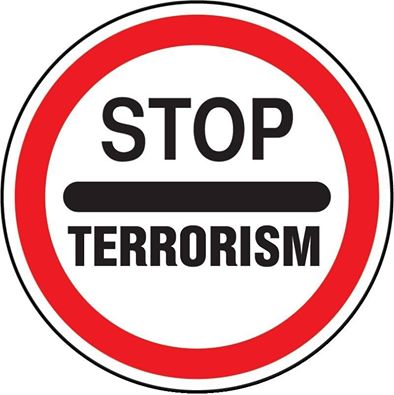SET OF MEASURES TO FIGHT AGAINST TERRORISM AND EXTREMISM
It is a logical fact that the topic of terrorism and extremism in the modern world and its information field is one of the most topical. The extremely dangerous socio-political and criminal phenomena of terrorism and extremism, as well as their varieties - criminal terrorist acts, extreme nationalist (separatist) manifestations, religious extremism, which represent a global threat to the security of the world and humanity, have become a huge problem of today. Tens of thousands of terrorist explosions have already occurred in many countries of the world, and the list of victims is long. A series of unprecedented in its consequences terrorist acts on the territory of the USA, Russia, Spain, Great Britain, India, Iraq, Indonesia, France and other states since the late 90's showed that the currently established mechanisms of countering terrorism in most states of the world do not correspond to the level and nature of the terrorist threat. At present, countering terrorist explosions is not a local task for one country, but a truly global problem. It should be noted that terrorism concerns both developed states and countries undergoing reform and formation and is a huge threat to national security.
Extremism - (from Latin extremus - extreme) is a commitment of individuals, groups, organizations to extreme views, positions and measures in public activities. Its goal: destabilization, destruction of relations and values established in society. As any manifestation, extremism has its certain characteristic features: violence or threat of violence; one-dimensional perception of social problems; fanaticism; thoughtless implementation of any orders; reliance not on reason, but on instincts, prejudices; inability to tolerance. Terrorism is a serious crime where an organized group of people seek to achieve their goal through violence. Often innocent people, including children, are victims of terrorism. Terror is intimidation, suppression of opponents, physical violence, up to physical destruction of people by committing acts of violence (murder, arson, explosions, hostage-taking). Hence, terrorism is a form of extremism. The word "terror" means "terror" in Latin. Terrorists are extremely cruel people who want to frighten us by any means, people who take hostages, organize explosions in crowded places, use weapons. There are 3 types of modern terrorism: nationalistic, religious and political. The concept of "terrorism", "terrorist", appeared in France at the end of the 18th century. This is how the Jacobins called themselves, and always with a positive connotation. However, during the Great French Revolution, the word "Terrorism" turned into a synonym for criminal. Until very recently, the term "terrorism" already meant a spectrum of different shades of violence. Dictionaries define the concept of "terrorism" as violent actions by criminal individuals to undermine existing power, complicate international relations, and politically and economically extort states. Currently, there are about a hundred terrorist organizations around the world, and extremism is acquiring increasingly diverse forms and threatening proportions.
At the beginning of the 21st century, there were about 500 terrorist organizations and groups of various extremist orientations operating in the world. Over the past 10 years, they have committed more than 6,500 acts of international terrorism, which have killed tens of thousands of people and injured more than 11,000. Terrorist acts cause mass human casualties; destroy material and spiritual values beyond repair; sow enmity between States and peoples; and provoke wars. These negative phenomena occur wherever there are information telecommunication networks, including the Internet. It is with their help that new members are attracted to unlawful organizations. It is also a convenient way to coordinate the perpetrators of extremist crimes and spread the ideology of terrorism and extremism. The threat of subversive acts will remain as long as these channels and sources exist. Religion is very often used as a recruitment tool and a means of exacerbating inter-confessional conflicts. Radical currents of Islam preach not only their own exclusivity, but also violent methods of spreading this faith.
The prevention of terrorist and other extremist activities includes the preparation and implementation by the State and its authorized bodies of a comprehensive system of political, socio-economic, informational, educational, organizational, operational and investigative, legal, special and other measures aimed at preventing, detecting, suppressing terrorist activities, minimizing their consequences, and identifying and eliminating the causes and conditions contributing to them. The prevention of extremism and terrorism is not only a task for the State, but also for representatives of civil society. This work depends on the clear position of political parties, public and religious associations and citizens.
Kasimov O.H., doctor of philological sciences, professor of the department of tajik language of ATSMU
translated
Ruzimuhammad Ismoilov

